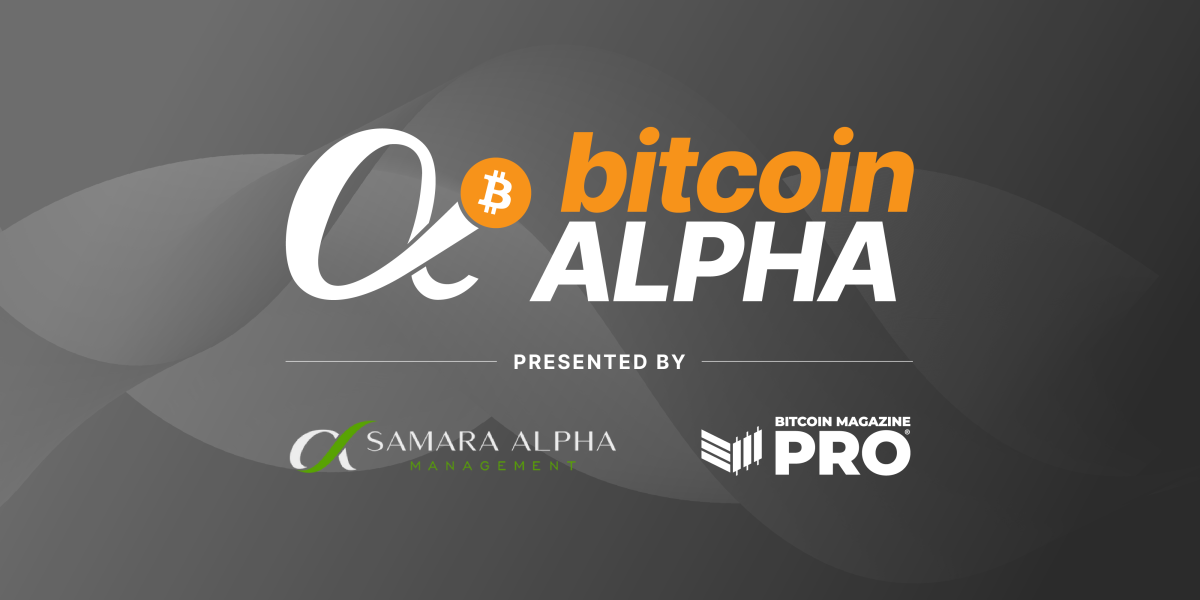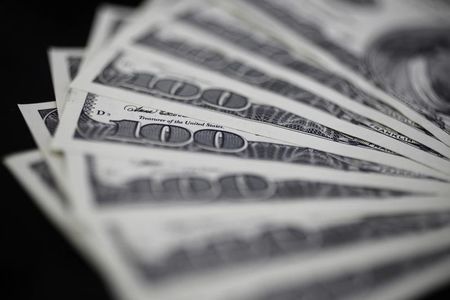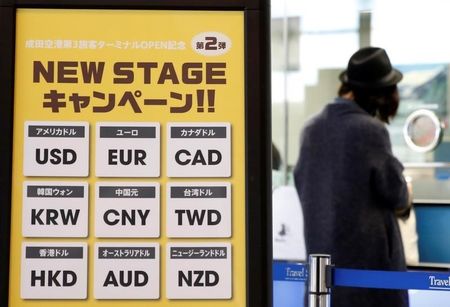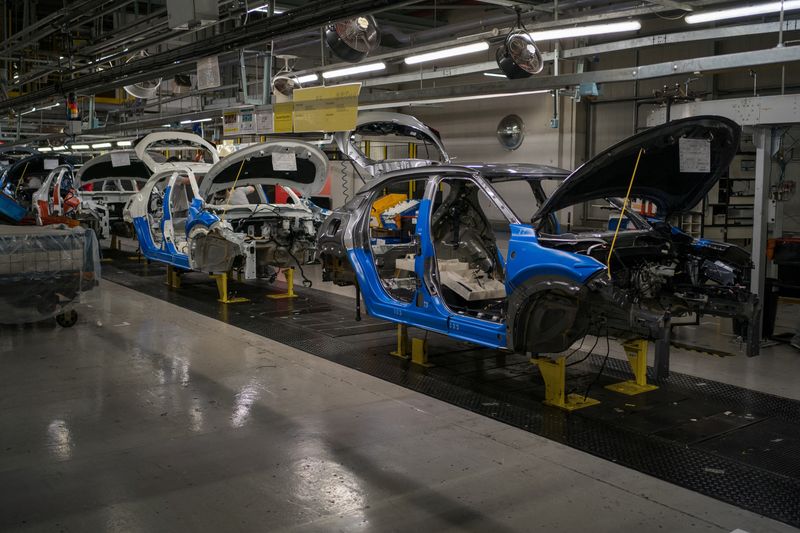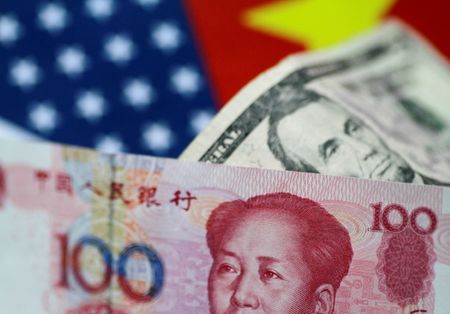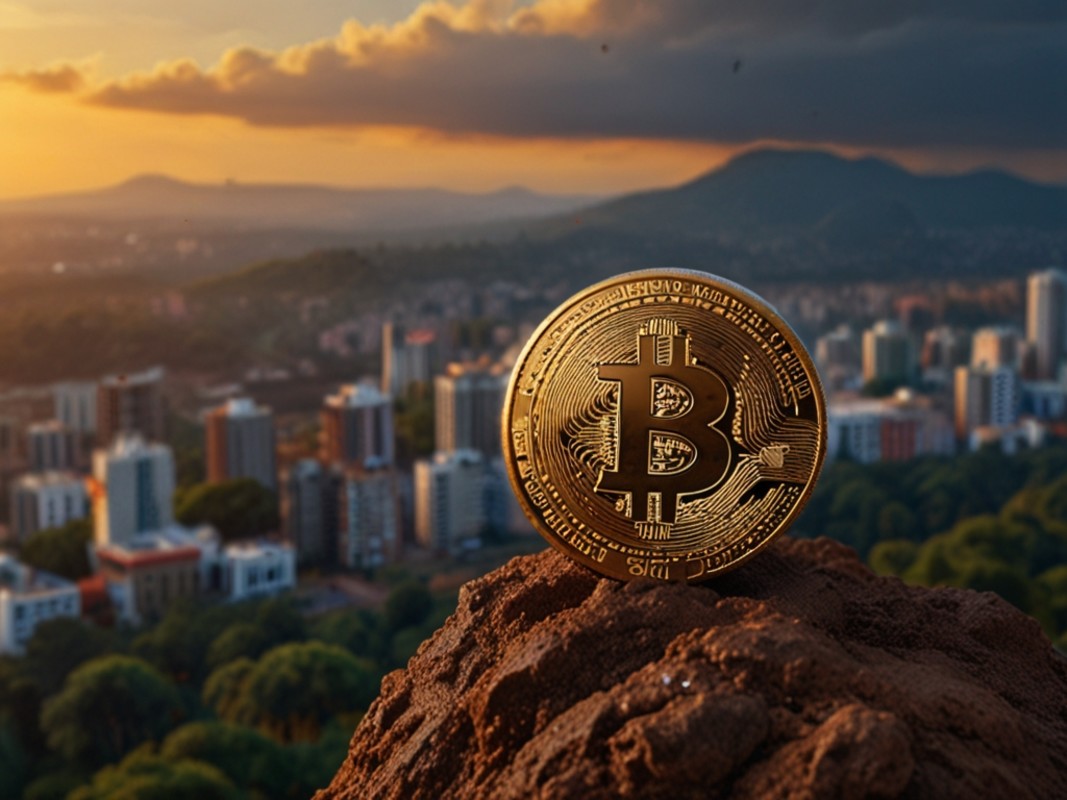Month: January 2025
Asia FX skittish as dollar hits 2-yr high on bets of slower rate cuts
Post Content
Owning 1 Bitcoin Is Better Than Being a Millionaire
Let me be honest—becoming a wholecoiner is one of the smartest moves you can make, but it’s also becoming ridiculously hard. I remember when I first got into bitcoin back in 2016. The price was around $400-$500, and owning one full bitcoin felt totally doable.
Now? It’s a completely different story.
Bitcoin is sitting near $100,000, and owning even half a bitcoin feels out of reach for most people. Let’s put this into perspective: the average savings for someone under 35 in the U.S. is just $20,540. That’s not even 25% of what it costs to buy 1 BTC today. Most of these millennials and zoomers can only dream of ever owning a whole bitcoin—it’s just not realistic for the average person anymore.
And here’s the part that really blows my mind: there are only about 1 million bitcoin addresses that hold more than 1 BTC. Even if we assume every single one of those addresses belongs to a different person (which isn’t true), that’s just 0.0125% of the global population. Think about it—being a wholecoiner already puts you in one of the most exclusive clubs in the world.
Now, let’s compare that to fiat millionaires. There are about 58 million millionaires worldwide. And here’s the kicker: there are only 21 million bitcoin in total. Even if every single millionaire on the planet wanted to own one bitcoin, they couldn’t. There’s just not enough bitcoin to go around. That’s why being a wholecoiner is better than being a fiat millionaire. Fiat is infinite—anyone can become a millionaire in a system where money is endlessly printed. But bitcoin? It’s hard-capped. Scarce.
If you’re a millionaire and you don’t own at least 1 bitcoin yet, wake up. The race is on, and most millionaires are going to miss out. And if you’re already a wholecoiner? Congratulations. You’re part of the 0.0125% who will ever own this much bitcoin.
It might not feel like a big deal now, but in 20 or 30 years, you’ll look back and realize how rare and special it is. As Tuur Demeester said: “These are the last months that 1 BTC is accessible to the upper middle class.” That quote stuck with me because it’s true. The window is closing.
If you’re in the race, don’t stop. And if you’re on the sidelines, it’s time to get moving—because bitcoin’s scarcity is going to leave a lot of people behind.
This article is a Take. Opinions expressed are entirely the author’s and do not necessarily reflect those of BTC Inc or Bitcoin Magazine.
$1 Million In Seed Capital Awarded To DeFi Hedge Fund Boreal, Bitcoin Alpha Competition Winner
At Bitcoin 2024 this past July, Samara Alpha Management and Bitcoin Magazine Pro selected Boreal, a market neutral DeFi hedge fund, as the winner of this year’s Bitcoin Alpha Competition.
Boreal was awarded $1 million in seed capital as well as access to Samara’s institutional-grade infrastructure to help manage its fund.
Boreal stood out because of its trading strategy, which utilizes various DeFi protocols to generate yield on top of US dollars, bitcoin and ether.
“Even when things are super bearish, there’s always a way to generate returns in DeFi,” said Boreal’s founder Evan Morris, who has been in the crypto space since 2016 and who worked in traditional finance prior to that.
“I began in this space four years ago managing outside money with two friends and then ended up joining a larger firm as a portfolio manager where I ran a DeFi strategy for a few years. More recently, I’ve launched Boreal, and now, with the help of Samara, we can really take things to the next level,” he added.
Adil Abdulali, Chief Investment Officer at Samara Asset Management and one of the judges in the competition, commented on why Samara is excited to partner with Boreal.
“Evan is somebody who has a very good track record of work and the right risk framework for this type of strategy,” he said. “He has trading maturity, and since crypto is a young market, somebody with several years of experience in DeFi is rare.”
Abdulali also shared details on how Samara plans to support Morris.
“We thought if there’s a way to quickly get him off the ground with all the infrastructure like admin, auditing, accounting, subscription docs, a bank account, BitGo accounts, etc. — all of which we have — then let’s do it,” he said.
DeFi on Bitcoin
Moving forward, Morris sees bitcoin playing a much bigger role in the DeFi space.
“With bitcoin coming onto the DeFi scene, we’re able to do some of the same things that we were able to do with stablecoins over the past few years,” he said.
“DeFi 1.0 was very USDC- and Tether-based, but the future of DeFi is going to involve different types of wrapped bitcoin and bitcoin derivatives. And we’re happy to provide liquidity.”
Abdulali also feels that bitcoin will play a bigger role in DeFi, and his firm is well-positioned to help Boreal capitalize on this.
“Bitcoin is not just like all other coins — it’s some of the best collateral out there,” he said.
“We use bitcoin in our bitcoin-denominated fund, which we started over a year ago and which employs essentially the same type of strategies that our dollar-denominated market-neutral fund does. However, the fund transacts entirely in bitcoin,” he added.
“The idea is to use bitcoin in these new DeFi protocols like Babylon in market-making strategies instead of putting collateral like USDC or USDT on an exchange.”
The Future of DeFi
Morris explained that DeFi has become much more advanced than it was four years ago, when it first came on the scene as a sector of crypto.
“There are just so many more tools to get alerts on smart contracts and evaluate smart contract security,” he said.
“Cybersecurity and wallet technology is so much better, as well. This enables institutional-grade DeFi products,” he added.
And Abdulali wants to see Boreal take advantage of this institutional-grade DeFi before the institutions arrive.
“All this new institutional capital is not even going to touch DeFi for a while,” explained Abdulali. “They’ve hardly gotten into bitcoin, so it’s going to be a long time before the DeFi landscape becomes saturated and there’s too much capital,” he added.
“There are going to be some juicy returns for some of us that are willing to play in the space now.”
Dollar trades higher on underlying strength in 2025
Post Content
British pound extends losing streak on first trading day
Post Content
The Women In Bitcoin That CoinTelegraph Forgot
Follow Frank on X.
A week ago, CoinTelegraph published a “women who kicked ass in crypto” piece in which only one non-American or non-European woman (Maya Parbhoe) was mentioned.
Because I feel that what’s happening with Bitcoin in Africa, Latin America, The Middle East and Southeast Asia — regions where bitcoin is more often used as a currency and a money of last resort — is far more exciting than what’s happening in the United States and Europe, I’m here tell you about some ladies in the Bitcoin space from these regions who kicked ass in 2024.
Farida Bemba Nabourema — Nabourema is a long-time activist and human rights defender, originally from Togo. She’s also the primary organizer for the African Bitcoin Conference, which, for the last three years, has provided Africans with an incredible opportunity to present to and network with Bitcoiners from around the globe.
Reyna Chicas — Chicas is a Salvadoran was promoted to Director of Education for Mi Primer Bitcoin this year, and she also sits on the organization’s board of directors. Her journey in Bitcoin started just two years ago when she went to the Adopting Bitcoin conference in El Salvador as an attendee.
Roya Mahboob — Mahboob is one of Afghanistan’s first female tech CEOs. She also founded the Digital Citizen Fund, a non-profit aimed at improving technological literacy of Afghan women. This year, she’s continued in her efforts to create IT centers for girls in high schools across Afghanistan and also bring her education model to schools in Bangladesh, India, Pakistan and Nepal.
Dea Rezkitha — Rezkitha is the Community Master for Southeast Asia for Fedi and co-founder of the Indonesian Bitcoin Community and the Indonesia Bitcoin Conference. Aside from keeping up with her duties for Fedi this year, Rezkitha toured the world speaking about her work at events like the Oslo Freedom Forum and Bitcoin 2024.
Lorraine Marcel — Marcel, based in Kenya, is the founder of Bitcoin Dada, a virtual Bitcoin education platform and sisterhood for African women. She was also awarded the Most Impactful African Bitcoiner of 2024 award by the African Bitcoiners group.
Kenyan Lorraine Marcel (@marcelorraine) is our Most Impactful African Bitcoiner of 2024!
Through @btc_dada and @DadaDevs she empowers leaders like @waithiraah, @LindaKariu54810, @noelynesumba and many others, creating a ripple effect which is changing Africa forever.
More👇 pic.twitter.com/W84gicWVs1
— African Bitcoiners ⚡ (@afribitcoiners) December 11, 2024
Isabella Santos — Santos is a co-founder of the Mexican Bitcoin community BTC Isla, based in Isla Mujeres as well as a co-founder of the Bitcoin media outlet Get Based (which recently released a killer documentary entitled “How The Federal Reserve Secretly Enslaved The World”). Beyond that, she continued to tour the globe this year as the host of Bitcoin Backstage, bringing you some juicy takes from backstage at the world’s biggest Bitcoin conferences.
Noelyne Sumba — Sumba, based in Kenya, oversees “orange-pilling operations” for Machankura, a Bitcoin Lightning wallet that can be used on feature phones. Also, in 2024, Saifedean Ammous’ classic The Bitcoin Standard was published in Swahili and Abdi thanks to Sumba’s help in translating the text.
Hadiya Masieh — Masieh is based in London but was born to Mauritian and Ugandan parents. She’s the founder of the Groundswell Project, an organization that works to foster peace and empathy amongst diverse communities. She gave a talk at the “Oslo Freedom Forum” this year entitled “How Bitcoin Can Fund Counter-Terrorism”, in which she highlighted how she’s taught Somali women how to use bitcoin for political fundraising to help support female candidates in the country.
Janet Maingi — Maingi, based in Kenya, is a co-founder of Gridless Compute, a company that not only mined bitcoin in Africa profitably this past year but also helped bring electrification to rural regions of Africa.
Mary Imasuen — Imasuen, who is of Nigerian and Filipino descent and based in Nigeria, is the Global Marketing Manager for Fedi and a self-described “bitcoin-only gamer” who often speaks in support of THNDR Games. While Imasuen wasn’t touring the world discussing her work in 2024, you could hear from her as a podcast guest or on a gaming stream
Honorable mentions: Renata Rodrigues (Head of Marketing and Community at Fedi, originally from Brazil), Lorena Ortiz (Latin America Community Master at Fedi, based in Mexico), Edith Mpumwire (Ugandan Community Manager for Bitcoin Dada and supporter of Bitcoin Kampala), Sabina Gitau (co-founder of Tando, based in Kenya), Efrat Fenigson (host of the “You’re The Voice” podcast, based in Israel)
And I’m going to give a quick shout out to some bad ass ladies who crushed it this year from Europe, the U.S. or elsewhere: Caitlin Long (the US-based CEO of Custodia Bank started a lawsuit against the Federal Reserve in 2024), Susie Violet Ward (the UK-based Bitcoin journalist and CEO of Bitcoin Policy UK wrote extensively about the dangers of over-regulating the Bitcoin industry in the UK and Europe this year), Umi Miyahara (the Japanese-American Business Development Lead at Breez, who helped facilitate many new partnerships for Breez in 2024) and L0la L33tz (the independent journalist did an incredible job of covering privacy as it pertains to Bitcoin and crypto for her publication The Rage).
I know there are an innumerable number of women in the Bitcoin space who neither I nor CoinTelegraph acknowledged.
To those women, I apologize for not being able to fit you into this piece, but I thank you for your work and contributions to the Bitcoin space.
This article is a Take. Opinions expressed are entirely the author’s and do not necessarily reflect those of BTC Inc or Bitcoin Magazine.
UK factories report sharpest contraction in nearly a year, PMI shows
Post Content
Asia FX marks tepid start to 2025, yuan slips on weak PMI data
Post Content
Bitcoin Is Fiat
Bitcoin is fiat. Now go ahead, take the time you need to get it out of your system. Breath deeply. Blood pressure still up? Okay, let’s try this then.
What does fiat mean? An arbitrary order or decree. Fiat currencies are given value by the authority of governments. They have value because the State decides they have value, and will accept them in payment of taxes. So how is Bitcoin fiat?
A king waives his hand and gives fiat value. But there is no King of Bitcoin. Right? Wrong. It’s us.
We collectively give value to Bitcoin through our decision to use it. We bring it into existence through our collective arbitrary decision. Despite all the memes and descriptions of Bitcoin as digital gold, it is by no means a commodity. Bitcoin has no distinct use-value and exchange-value. It is not a physical raw material that can be converted into something else. It’s a database that sits on your computer. And mine. And everyone else’s.
The only reason Bitcoin is even a coherent singular thing in the first place is because of
everyone’s arbitrary decision to use the same rules to validate changes to its database. Without that, Bitcoin would just be innumerate copies of conflicting databases in different states all over the world. There wouldn’t be a Bitcoin, and therefore it could not have any value.
Its use-value is its exchange-value. They are two sides of the same coin, brought into existence purely through a collective fiat decree.
Bitcoin might be hard money, it might be finite in supply, it might be all these things with potential to change economic incentives globally. But it is also fiat. Every property it has, everything it is, exists purely because of our collective and arbitrary decision to make it exist.
Bitcoin is the world’s first stateless fiat.
This article is a Take. Opinions expressed are entirely the author’s and do not necessarily reflect those of BTC Inc or Bitcoin Magazine.
Recounting Ethiopia’s Bitcoin Developments In 2024
Ethiopia’s state-owned power producer, and a population of 126 million Ethiopians, welcomed the bitcoin mining industry in 2024 with an attractive electricity rate of USD 3.2 cents KWh. In this past year EEP has generated USD 55 million in revenues from bitcoin miners and expects USD 123 million in the year to come.
As we look forward to 2025, let’s take time to recognize the efforts and events in Ethiopia from the year 2024. These highlights can serve as a blueprint for how other energy-potential rich nations, even those too small or timid to challenge historical assertions about money, can also join in this race for energy and add-value to the bitcoin network.
First Quarter
December 13, 2023, the Financial Accounting Standards Board (FASB) issued an Accounting Standards Update that addresses the accounting for and disclosure of “crypto” assets. Google Developers Group Addis (GDG Addis) invited Kal Kassa of BitcoinBirr and Dr. Nemo Semret of QRB Labs to speak at DevFest’23.RT published news of Russian investors setting up bitcoin mining facilities in Ethiopia. Shega features QRB Labs along with a Bloomberg Article on Chinese investors also working in bitcoin mining.February 12, 2024, BBC News Day Live interviewed Kal Kassa about bitcoin mining in Ethiopia. Then on February 21, 2024, Addis Standard published revenue figures of USD 2 million earned by Ethiopian Electric Power (EEP) from bitcoin miners. Within the year we will see this sales figure grow significant multiples.As the first signs of return in the bitcoin mining industry were reported, within days of each other, Bitcoin Magazine published 5 Ways Bitcoin Mining Benefits Ethiopia, then The Economist published Why Africa is Crypto’s Next Frontier and finally Addis Standard published From Shadows to Spotlight: Why Ethiopia Became Latest scene for Cryptocurrency Rush. In the first quarter of this year CNBC’s MacKenzie Sigalos also visited Addis Ababa to learn about this new industry.
Second Quarter
Dr. Nemo Semret of QRB Labs published Bitcoin Mining in Ethiopia; the good, the bad and the ugly ahead of his interview with Hashrate Up Podcast and Gugut Podcast to talk about experiences building his facility and recent developments in the energy sector.May 3, 2024, Bloomberg’s Next Africa Podcast host Jennifer Zabasajja spoke with reporter Fasika Tadesse in a segment titled Ethiopia: An African Paradise For Crypto Miners? And on May 23, 2024, Addis Standard published revenue figures of USD 10.1 million earned by Ethiopian Electric Power (EEP) from bitcoin miners.
Third Quarter
Blink publishes Bitcoin Mining in Africa: All Roads Lead to Ethiopia.August 25, 2024, Addis Standard published revenue figures of USD 27 million earned by Ethiopian Electric Power (EEP) from bitcoin miners.The Prime Minister of Ethiopia, Abiy Ahmed announces the Private Key Infrastructure (PKI) initiative in partnership with the Information Network Security Administration (INSA) to support local offices with cryptographic messaging and private-key related issues. BitCluster shared photos of its facilities in Ethiopia after deploying 12,000 bitcoin mining machines. In the third quarter of 2024 we also saw the eCrypto GitHub page publish an Amharic translation of the bitcoin whitepaper.
Fourth Quarter
DINK TV and Genet Shiberu interview West Data Group in Bole Lemi for a tour of an operational 30 MW bitcoin mining facility.Ethan Vera of Luxor and Kal Kassa of BitcoinBirr joined The Mining Pod with Will Foxley to talk about Ethiopia’s Bitcoin Mining Boom.In the fourth quarter of 2024 we also learned that BitFuFu (NASDAQ: FUFU) was to acquire a 80-MW Bitcoin mining facility in Ethiopia. A few weeks later, Morningstar’s Newswire published BIT Mining Limited (NYSE: BTCM) completed the first phase of acquisition in Ethiopia for a deal that includes USD 2.265 million in cash and USD 12.015 million in shares.October 3rd, 2024, the Green Africa Mining Alliance (GAMA) hosted the Africa Bitcoin Mining Summit (ABMS ‘24) at Kuriftu Resort in Entoto Park, Addis Ababa. November 4, 2024, Fred Harter of The Africa Report published revenue figures of USD 55 million earned by Ethiopian Electric Power (EEP) from bitcoin miners. Forecasts for next year’s revenue from bitcoin miners stands at USD 123 million. November 5, 2024, The Bitcoin Summit ‘24 was hosted by BitcoinBirr at Sheraton Hotel in Addis Ababa. The event’s leading sponsor, West Data Group, announced news of a 20 MW facility in Wolaita Sodo breaking ground.Business correspondent Charles Gitonga of the BBC Africa interviews Kal Kassa on the Focus on Africa Podcast titled Why is Ethiopia a Major Hub for Bitcoin Mining? Addis Insight shared its article on the subject titled From Hydroelectric Power to Bitcoin: Ethiopia’s Rise as a Mining Hub.November 29, 2024, Ato Henok Assefa published How Bitcoin Mining Can Help Achieve Universal Electrification in Africa. That same week Henok Assefa joined the board of the state-owned Commercial Bank of Ethiopia (CBE). And days later we learned that Ethiopian Electric Power (EEP) will be under the new ownership of the Ethiopian Investment Holdings (EIH).Closing out the year, on December 5, 2024, the “Bitcoin” Telegram channel posts that 2.5% of the global Bitcoin hashrate now comes out of Ethiopia and that this number is poised to double in the next year.
Ethiopia’s next objective, if it’s to be supported by the various market actors and individuals involved, will be to contribute 1 GW of energy into the Bitcoin network.
The future of Bitcoin mining in Ethiopia depends on how the Ethiopian government will treat the industry. Since the industry is sensitive to energy, government offices should focus on electricity production, distribution, stability, immutability of commercial contract terms, clear customs procedures, and transparent tax laws. As I work with brilliant bitcoiners around the world, I am optimistic we will reach these goals. Stay humble, stack sats and have a beautiful new year!
This is a guest post by Kal Kassa. Opinions expressed are entirely their own and do not necessarily reflect those of BTC Inc or Bitcoin Magazine.


